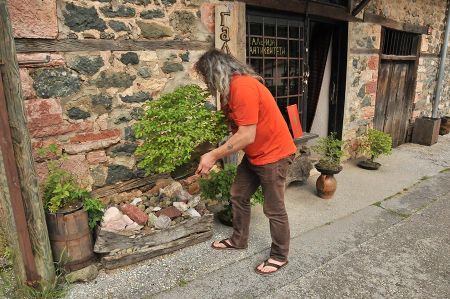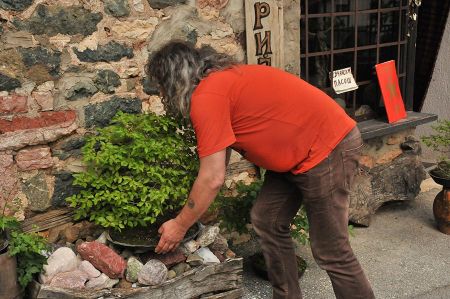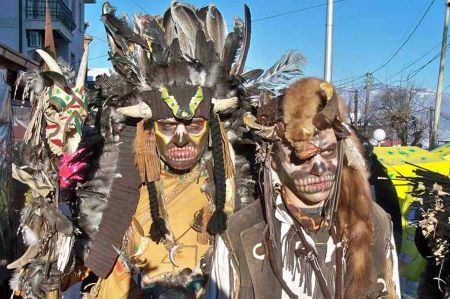Vevčani - Carnival according to the Julian calendar
- Written by Portal Editor
Our main goal for the trip to the village of Vevčani was actually to visit the springs and waterfalls at the foot of the Jablanica Mountains. However, it quickly became apparent that the village itself also had some interesting details; in addition to the ancient houses in the village centre, which have really interesting chimney constructions and, from a structural point of view, also combine a wide variety of construction features.
Who would expect a connection between the turn of the year and carnival according to the Julian calendar in this mountain village in Macedonia? Are you?
Minerals, coins and even some magnificent bonsai

He had invested so much effort into the design that one could speak of real trees in miniature. So of course, we quickly found ourselves engrossed in a conversation that went far beyond the topic of bonsai.

Now the shop owner booted up his PC and quickly opened a series of photos that pointed to one of the attractions of the village of Vevčani: carnival parade in the village with full costumes due to a traditional New Year's parade, which is celebrated here according to the tradition according to the Julian calendar.
Julian calendar was recognized throughout the Roman Empire
The Julian year is 11 minutes and 14 seconds too long compared to the solar year. This led to an increasing deviation from the path of the sun, which by the 14th century was already more than seven days. Another reason for the Gregorian reform was the spring full moon, which was incorrectly determined using the old Easter formula, on which the date of Easter depends.
Some Orthodox churches (e.g. the Russian, Serbian, Georgian, Macedonian and Ukrainian churches) continue to celebrate all their festivals according to the Julian calendar. Their Christmas (December 25th) currently falls on January 7th (Gregorian). The New Year celebrations will be postponed to January 13th or 14th.
The carnival in Vevčani is not as “sexy” as in Rio
“Disguise yourself well so that evil does not recognize you. Then burn the mask and with it the evil burns away and the good remains” - this is the motto to which one surrenders oneself to a wild spirit, an ecstatic body and lots of wine, thus following ancient traditions that have supposedly been going on for more than 1,400 years.
In 1993, Vevčani even became a member of the World Carnival Cities Federation.
Please read as well:
The famous Matka - Canyon, Dam and Gorge near Skopje
Ohrid - lovely city hike with Marta and Luis
https://www.alaturka.info/en/life/flora/6762-st-nicholas-church-rostock-rostock-bosai-days-2024/en/macedonia/struga/6383-vevcani-carnival-according-to-the-julian-calendar/amp#sigProId2c8d65b7a9
